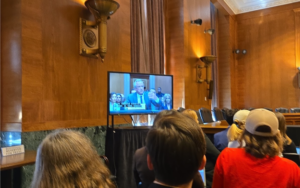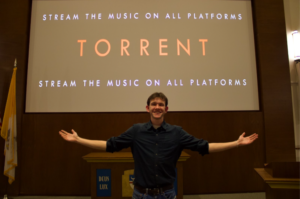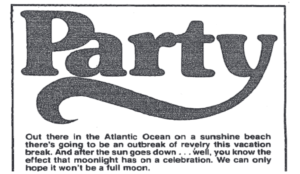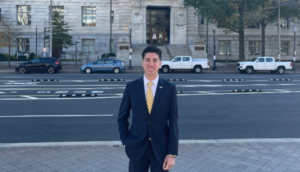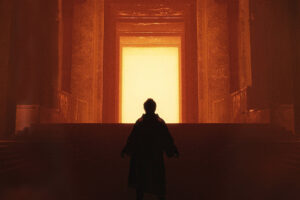CUA’s DC Representative Discusses Safety Concerns, Campus Improvements
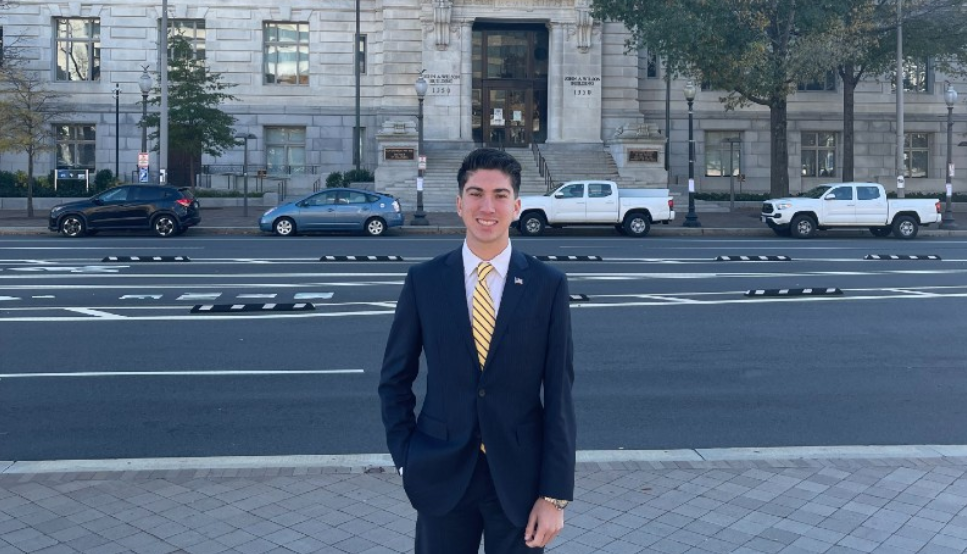
Image courtesy of The Catholic University of America
By Patrick D. Lewis
When it comes to the big issues in DC local government, the news cycle reports on the mayor, city council, and federal government’s decisions and deliberations. However, the majority of local decisions begin and are made by the neighborhood-based Advisory Neighborhood Commission (ANC). Catholic University has its very own member of the ANC, senior finance major Diego Rojas.
Rojas represents commission sector 5A04, which includes Catholic University’s property as well as the National Shrine. This puts Rojas in the complex situation of representing people who, while all living in the District, are predominantly residents – and voters – of other states. We caught up with Rojas late last semester to hear about his accomplishments, initiatives, and goals.
“The ANC’s all about getting community input,” Rojas said. The commission, which operates on a ward-based system, votes on things like building permits, recommendations for the DC City Council, and solving neighborhood problems in collaboration with other DC departments and agencies. One of Rojas’ first experiences on the commission was working to get input on the construction of Garvey Hall and the Conway School of Nursing, both major projects at CUA that required significant government oversight due to their size, budget, and impact on the community.
One of Rojas’ main interests is crime and public safety in the District, especially on and near campus within the Brookland area.
“You could kill somebody at 23 years old and be charged the same way as a 13-year-old,” Rojas said, referring to DC rules regarding who can be charged as a minor. “Just really loose sentencing, a lot of cases would just get completely tossed.” He mentioned the July 2023 on-campus murder of a high school teacher visiting the city, in which the suspect had “30-something run-ins with the law but was released a few months before that.”
“Initially, what I first started to work on was really trying to work with the DC Council, you know, voicing my concerns about that,” he said.
He also has worked with the university to try to make things more secure, and is continuing to do so.
“I’ve been pretty vocal about how I think there’s not enough security at this school. They’ve certainly tried to, like, do things to increase it, but I think there needs to be a lot more alarm on what’s going on,” he said.
Rojas wants to see more armed DPS and security personnel on campus, as well as a security fence around the campus, or at least around areas like the woods, where robberies have happened in the past.
“The only way to increase safety here at this school is to have more fencing, more armed guards.” He says the university has “taken steps in the right direction” to make the school safer, but more needs to happen. He acknowledges that CUA should “have a good relationship” with the city and neighborhood, which is sometimes used as an argument against installing a fence, but says the school’s first priority needs to be the safety of its own community.
He also wants more congressional involvement and oversight of DC safety issues. Last year, Rojas joined other ANC commissioners and DC leaders on Capitol Hill to lobby for more funding for the Metropolitan Police Department, reform for the DC Criminal Code, and to push for an end to juvenile sentences for adult offenders. He was involved in forming the DC CRIMES Act, which would remove the DC Council’s authority in amending the code, instead giving that power to Congress. The bill passed the House but did not come up for a vote in the Senate after then-president Joe Biden vowed to veto it should it come to his desk. This obstacle could change now that Donald Trump has taken office.
“I think there’s gotta be change at the higher levels of leadership here at this city,” Rojas said, acknowledging that the mayor’s office has tried to make positive changes but has been held back by the city council.
Rojas has also worked with the school as it has improved its campus infrastructure. “The other main thing that this school’s done a great job on is a lot of infrastructure at this school,” he said. He had the opportunity to be part of the groundbreaking ceremony for the Conway School of Nursing, and noted the new Cardinal Spirit Shop and Garvey Hall.
“I think they’ve done a ten out of ten job with that [infrastructure],” he said. “I think that’s the biggest way you can improve an area.”
One of Rojas’ other interests is business, his major. He runs a business that buys and renovates former drug houses and other dilapidated buildings before turning them over to people who need housing. He believes a model like this could be used citywide, in neighborhoods like Brookland, to improve quality of life. He is working with the DC government to remove some of the red tape hindering start-ups and nonprofits that are working to improve neighborhoods through projects like his.
Rojas was 18 when he was elected during his freshman year, and is still the youngest member of the ANC. He says that seeing how the community comes together around topics important to them shows that division is mainly confined to national politics.
“On the local level, I’m definitely more on the conservative side and most of the constituents are on the liberal side, but we actually all have the exact same goals. 99% of the votes, we all agree on,” he said. “If you live here, you want increased safety, you want buildings to get built.”
That local collaboration and agreement is only hampered by the red tape and bureaucracy that are present in the city, according to Rojas. If those are lessened, he believes there will be real change.
“I think there’s no reason why DC shouldn’t be the safest, most powerful, best city to live in in the world.”

